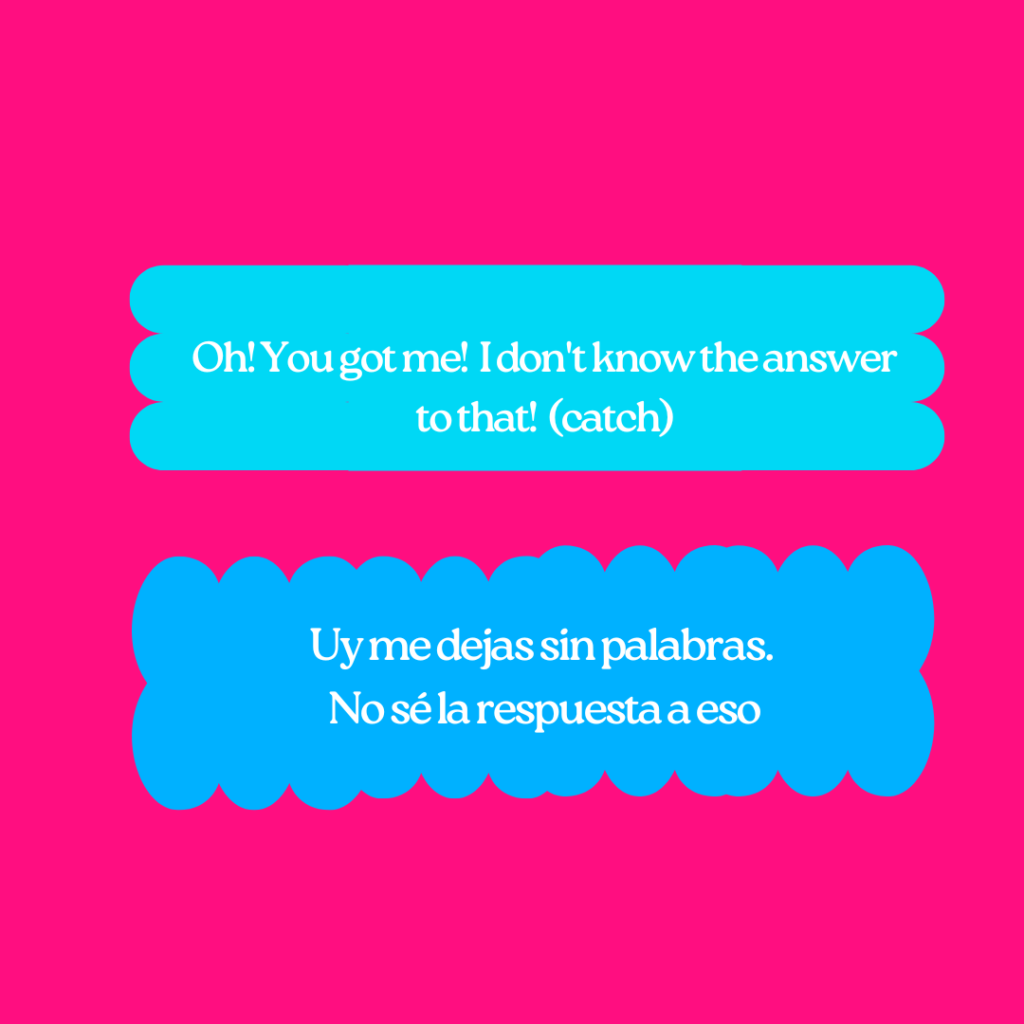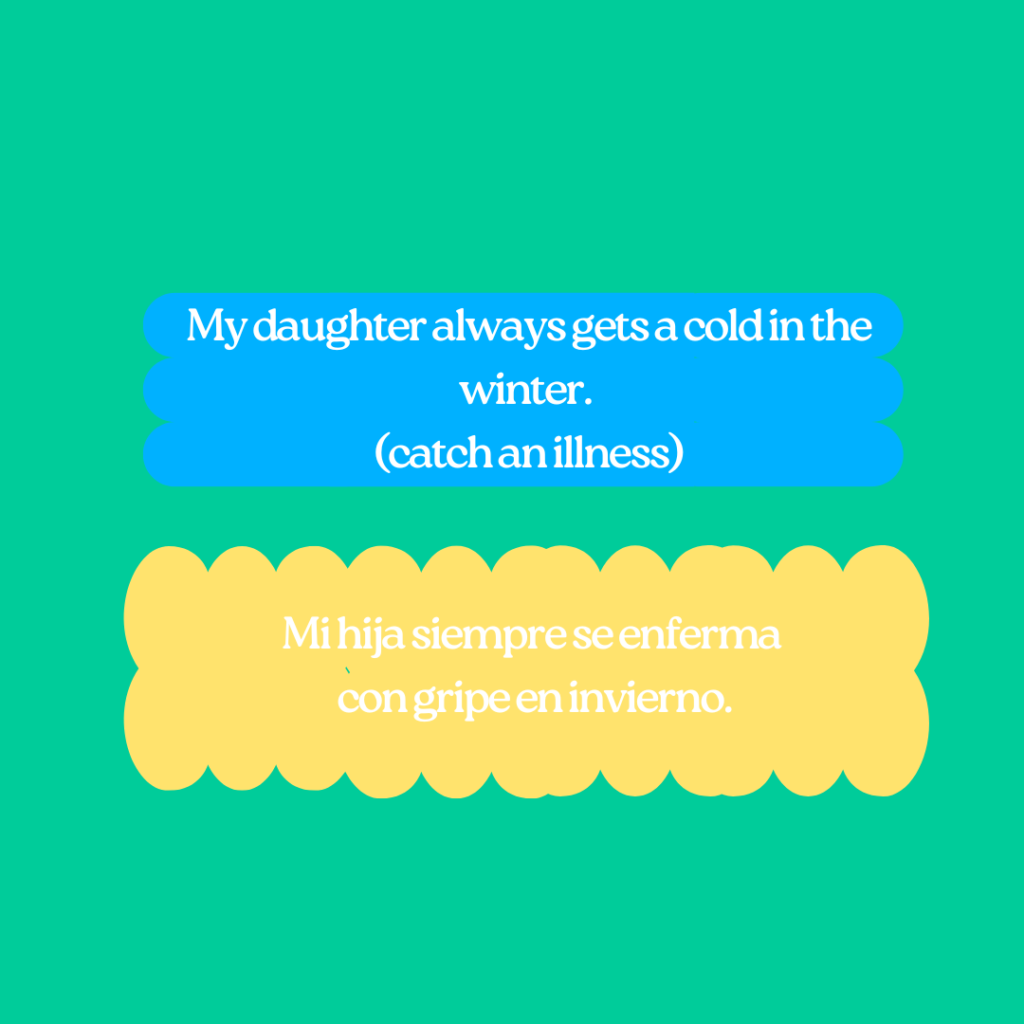Transform how you learn Spanish with these 10 cool uses of GET.
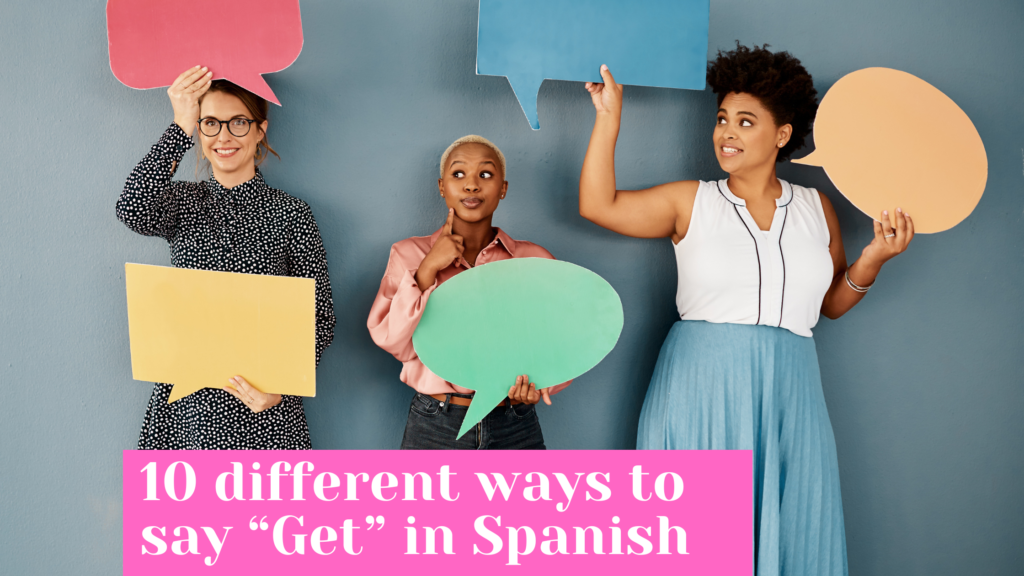
How do say get in Spanish? How often have you asked this to your Spanish teacher or when you learn Spanish on your own? This one tool will help you optimize your translation skills and learn Spanish faster. As a beginner Spanish learner, you are probably relying heavily on word-to-word translation. This post will help you shift your mindset a bit on how to use English-to-Spanish translation more efficiently.
When to use direct translation to learn Spanish faster
Direct translation rarely works well, and this is especially true when you’re trying to learn a new language like Spanish as an English speaker. Since English and Spanish have different linguistic roots, their structures, word counts, and word orders are very distinct. This means that translating word-for-word often leads to nonsensical results when you are trying to speak Spanish.
However, I don’t want to discourage the use of translation entirely. As a Spanish teacher and second language learner, I understand that it’s normal for translation to be a significant learning tool. But, before you use it, I’d like to share some interesting facts about the English language that may surprise you and help you understand how your language functions better. This can then help you make more accurate translations in the future.
Here’s a fascinating fact about the English language:
A single word can have many different meaning depending on the context you use it in.
Consider this: could speakers of other languages have assigned different labels and meanings to these diverse interpretations of the same word?
The answer is YES! Of course! Why wouldn’t they?
How to make more accurate translations when you study Spanish
Let’s delve into my favorite example: “How do you say get?”
How do you say get in Spanish?
Have you ever looked up the word “get” in a dictionary? It has numerous meanings and usage examples. So, before you spend a moment trying to recall the Spanish equivalent of “get,” do this first.
Going beyond the surface. Understand what you are trying to say.
This is the best secret a Spanish teacher can give her Spanish class: find a synonym for “get” based on the specific phrase you have in mind. Here’s how this might look. Swipe all right and see our most common uses of the word get.
Hear from Belén, explanation and examples with pronunciation to better practice these uses of get in the video below.
Have you ever considered the multitude of meanings behind such a seemingly simple word? Understanding more about how your language operates will greatly assist you in learning a second language. Moreover, it will provide you with a deeper insight into English, allowing you to appreciate your language even more and understand why Spanish behaves differently.
Acquiring this understanding will transform the way we approach differences between English and other languages. Instead of being frustrated by the disparities, we can become fascinated and eager to learn more. Having a curious mindset towards Spanish, rather than being annoyed by its differences from our own, makes Spanish learning much more enjoyable and broadens our minds and our appreciation for the wonders of other cultures.
Get more free tips and tutorials to learn Spanish
Are you thirsty for more? Take this info with you wherever you go by downloading the free PDF in the button below. There are plenty of free resources for Spanish learners on our blog, social media, and YouTube channel. To talk with us, find out more about our private lessons both online and in person in Costa Rica, follow the links below.

1 Powerful insight will transform your reasons to learn Spanish for ever!
If you think you learn Spanish to travel or live in Latin America, you are doing much more than that! You are embarking on a journey far beyond that, and that deserves recognition. Language shapes our perception of the world, granting us greater insight into others, and fostering a more profound understanding and acceptance of…
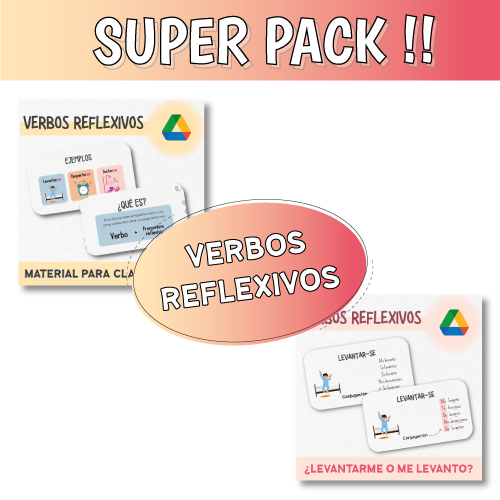
99 diapositivas que no fallan para enseñar los Verbos Reflexivos en tu clase de ELE en línea.
¿Estás buscando recursos efectivos y atractivos para enseñar verbos reflexivos en tus clases de español en línea? Estoy tan feliz con éste nuevo set de diapositivas de verbos reflexivos que tengo que compartirlo con vos profe de ELE! Están especialmente diseñadas para ayudar a los profesores a introducir, estudiar y practicar la conjugación de los…
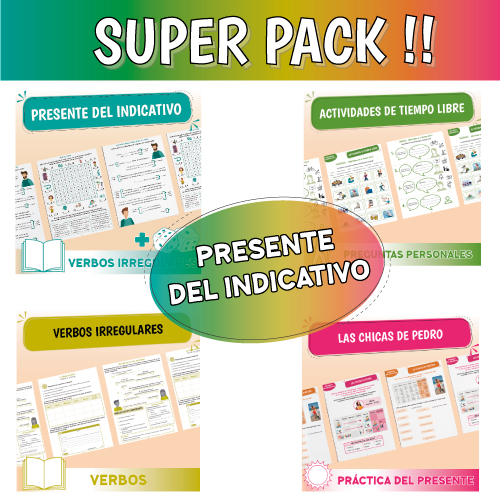
¡Actividades de ELE para practicar los pretéritos con adultos! 4 worksheets para inspirar a tus alumnos.
Si enseñas el pasado en tus clase de ELE, necesitas ayuda. Por eso te comparto estas actividades de ELE para practicar los pretéritos con adultos. Realmente motivan y divierten a tus estudiantes y les permiten practicar los pretéritos en español de una manera significativa con temas que se conectan con su realidad. Aquí te dejo…
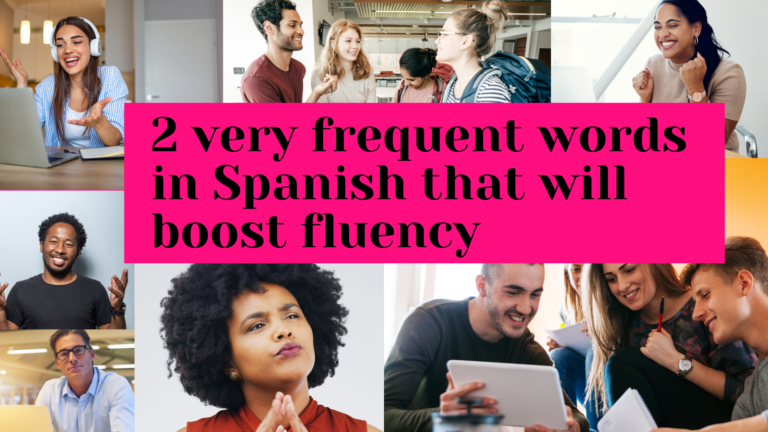
Master these 2 super frequent words in Spanish to chat like a native.
Spanish speakers have a set of frequent words in Spanish that we use all the time. These are called high-frequency words and learning them will improve your Spanish fluency and comprehension. First, you will understand conversation more easily since there is a high chance you will hear these words. Also, if you use them, you…
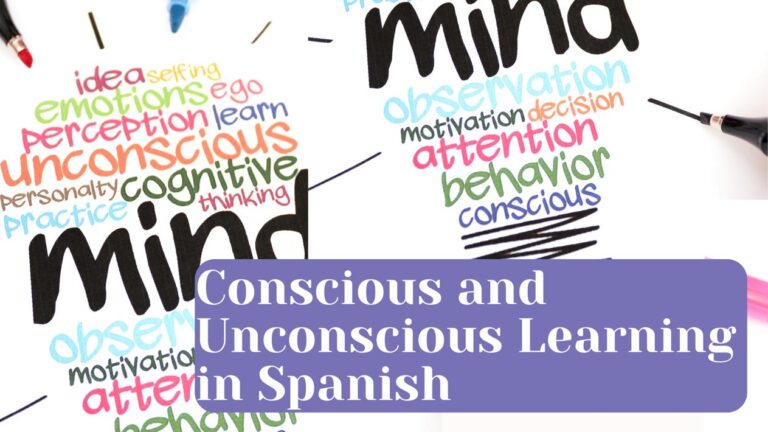
2 things you need to know about your brain to learn Spanish more efficiently.
When you learn Spanish, one of the most exciting and rewarding moments is when you find yourself using a word that you didn’t even know you knew!! It took no effort and it waltzed out of your mouth with grace and precision leaving yourself shocked. These are the moments that we need to foster and…

Frustrated and stuck? 3 factors affecting your Spanish learning.
Hey there! Have you considered that there might be three factors slowing down your Spanish learning? Don’t worry, identifying them could help you get back on track. Let’s find out what these factors are and how we can improve them. 1. Damaging self-dialogue when learning Spanish I am not good at this! I’ll never get…







